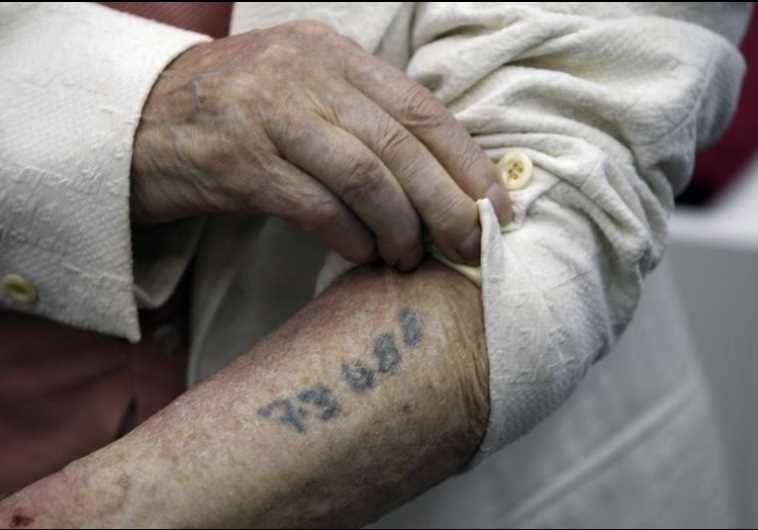This year’s Yom Hashoah
I feel trepidation that six million people killed for being Jewish is slightly more comprehensible to me at this time than it ever was before.
 A Holocaust survivor shows his prisoner number tattooed on his arm, Yad Vashem, Jerusalem
A Holocaust survivor shows his prisoner number tattooed on his arm, Yad Vashem, Jerusalem